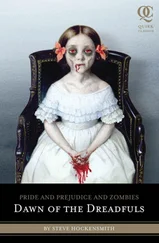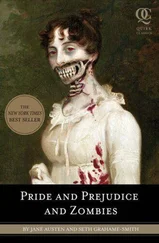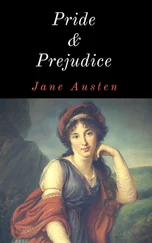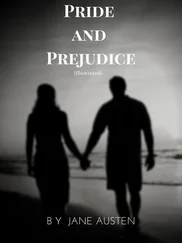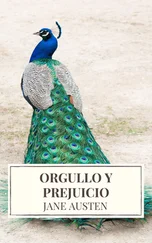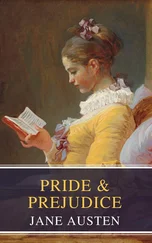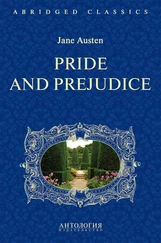Jane Austin - Pride and Prejudice
Здесь есть возможность читать онлайн «Jane Austin - Pride and Prejudice» — ознакомительный отрывок электронной книги совершенно бесплатно, а после прочтения отрывка купить полную версию. В некоторых случаях можно слушать аудио, скачать через торрент в формате fb2 и присутствует краткое содержание. Жанр: unrecognised, на немецком языке. Описание произведения, (предисловие) а так же отзывы посетителей доступны на портале библиотеки ЛибКат.
- Название:Pride and Prejudice
- Автор:
- Жанр:
- Год:неизвестен
- ISBN:нет данных
- Рейтинг книги:3 / 5. Голосов: 1
-
Избранное:Добавить в избранное
- Отзывы:
-
Ваша оценка:
- 60
- 1
- 2
- 3
- 4
- 5
Pride and Prejudice: краткое содержание, описание и аннотация
Предлагаем к чтению аннотацию, описание, краткое содержание или предисловие (зависит от того, что написал сам автор книги «Pride and Prejudice»). Если вы не нашли необходимую информацию о книге — напишите в комментариях, мы постараемся отыскать её.
Pride and Prejudice — читать онлайн ознакомительный отрывок
Ниже представлен текст книги, разбитый по страницам. Система сохранения места последней прочитанной страницы, позволяет с удобством читать онлайн бесплатно книгу «Pride and Prejudice», без необходимости каждый раз заново искать на чём Вы остановились. Поставьте закладку, и сможете в любой момент перейти на страницу, на которой закончили чтение.
Интервал:
Закладка:
eyes towards Mr. Darcy with a very expressive smile. Elizabeth,
for the sake of saying something that might turn her mother’s
thoughts, now asked her if Charlotte Lucas had been at Longbourn
since _her_ coming away.
“Yes, she called yesterday with her father. What an agreeable man
Sir William is, Mr. Bingley, is not he? So much the man of
fashion! So genteel and easy! He has always something to say to
everybody. _That_ is my idea of good breeding; and those persons
who fancy themselves very important, and never open their mouths,
quite mistake the matter.”
“Did Charlotte dine with you?”
“No, she would go home. I fancy she was wanted about the
mince-pies. For my part, Mr. Bingley, _I_ always keep servants
that can do their own work; _my_ daughters are brought up very
differently. But everybody is to judge for themselves, and the
Lucases are a very good sort of girls, I assure you. It is a pity
they are not handsome! Not that _I_ think Charlotte so _very_
plain—but then she is our particular friend.”
“She seems a very pleasant young woman.”
“Oh! dear, yes; but you must own she is very plain. Lady Lucas
herself has often said so, and envied me Jane’s beauty. I do not
like to boast of my own child, but to be sure, Jane—one does not
often see anybody better looking. It is what everybody says. I do
not trust my own partiality. When she was only fifteen, there was
a man at my brother Gardiner’s in town so much in love with her
that my sister-in-law was sure he would make her an offer before
we came away. But, however, he did not. Perhaps he thought her
too young. However, he wrote some verses on her, and very pretty
they were.”
“And so ended his affection,” said Elizabeth impatiently. “There
has been many a one, I fancy, overcome in the same way. I wonder
who first discovered the efficacy of poetry in driving away
love!”
“I have been used to consider poetry as the _food_ of love,” said
Darcy.
“Of a fine, stout, healthy love it may. Everything nourishes what
is strong already. But if it be only a slight, thin sort of
inclination, I am convinced that one good sonnet will starve it
entirely away.”
Darcy only smiled; and the general pause which ensued made
Elizabeth tremble lest her mother should be exposing herself
again. She longed to speak, but could think of nothing to say;
and after a short silence Mrs. Bennet began repeating her thanks
to Mr. Bingley for his kindness to Jane, with an apology for
troubling him also with Lizzy. Mr. Bingley was unaffectedly civil
in his answer, and forced his younger sister to be civil also,
and say what the occasion required. She performed her part indeed
without much graciousness, but Mrs. Bennet was satisfied, and
soon afterwards ordered her carriage. Upon this signal, the
youngest of her daughters put herself forward. The two girls had
been whispering to each other during the whole visit, and the
result of it was, that the youngest should tax Mr. Bingley with
having promised on his first coming into the country to give a
ball at Netherfield.
Lydia was a stout, well-grown girl of fifteen, with a fine
complexion and good-humoured countenance; a favourite with her
mother, whose affection had brought her into public at an early
age. She had high animal spirits, and a sort of natural
self-consequence, which the attention of the officers, to whom
her uncle’s good dinners, and her own easy manners recommended
her, had increased into assurance. She was very equal, therefore,
to address Mr. Bingley on the subject of the ball, and abruptly
reminded him of his promise; adding, that it would be the most
shameful thing in the world if he did not keep it. His answer to
this sudden attack was delightful to their mother’s ear:
“I am perfectly ready, I assure you, to keep my engagement; and
when your sister is recovered, you shall, if you please, name the
very day of the ball. But you would not wish to be dancing when
she is ill.”
Lydia declared herself satisfied. “Oh! yes—it would be much
better to wait till Jane was well, and by that time most likely
Captain Carter would be at Meryton again. And when you have given
_your_ ball,” she added, “I shall insist on their giving one
also. I shall tell Colonel Forster it will be quite a shame if he
does not.”
Mrs. Bennet and her daughters then departed, and Elizabeth
returned instantly to Jane, leaving her own and her relations’
behaviour to the remarks of the two ladies and Mr. Darcy; the
latter of whom, however, could not be prevailed on to join in
their censure of _her_, in spite of all Miss Bingley’s witticisms
on _fine eyes_.
Chapter 10
The day passed much as the day before had done. Mrs. Hurst and
Miss Bingley had spent some hours of the morning with the
invalid, who continued, though slowly, to mend; and in the
evening Elizabeth joined their party in the drawing-room. The
loo-table, however, did not appear. Mr. Darcy was writing, and
Miss Bingley, seated near him, was watching the progress of his
letter and repeatedly calling off his attention by messages to
his sister. Mr. Hurst and Mr. Bingley were at piquet, and Mrs.
Hurst was observing their game.
Elizabeth took up some needlework, and was sufficiently amused in
attending to what passed between Darcy and his companion. The
perpetual commendations of the lady, either on his handwriting,
or on the evenness of his lines, or on the length of his letter,
with the perfect unconcern with which her praises were received,
formed a curious dialogue, and was exactly in union with her
opinion of each.
“How delighted Miss Darcy will be to receive such a letter!”
He made no answer.
“You write uncommonly fast.”
“You are mistaken. I write rather slowly.”
“How many letters you must have occasion to write in the course
of a year! Letters of business, too! How odious I should think
them!”
“It is fortunate, then, that they fall to my lot instead of
yours.”
“Pray tell your sister that I long to see her.”
“I have already told her so once, by your desire.”
“I am afraid you do not like your pen. Let me mend it for you. I
mend pens remarkably well.”
“Thank you—but I always mend my own.”
“How can you contrive to write so even?”
He was silent.
“Tell your sister I am delighted to hear of her improvement on
the harp; and pray let her know that I am quite in raptures with
her beautiful little design for a table, and I think it
infinitely superior to Miss Grantley’s.”
“Will you give me leave to defer your raptures till I write
again? At present I have not room to do them justice.”
“Oh! it is of no consequence. I shall see her in January. But do
you always write such charming long letters to her, Mr. Darcy?”
“They are generally long; but whether always charming it is not
for me to determine.”
“It is a rule with me, that a person who can write a long letter
with ease, cannot write ill.”
“That will not do for a compliment to Darcy, Caroline,” cried her
brother, “because he does _not_ write with ease. He studies too
much for words of four syllables. Do not you, Darcy?”
“My style of writing is very different from yours.”
“Oh!” cried Miss Bingley, “Charles writes in the most careless
Читать дальшеИнтервал:
Закладка:
Похожие книги на «Pride and Prejudice»
Представляем Вашему вниманию похожие книги на «Pride and Prejudice» списком для выбора. Мы отобрали схожую по названию и смыслу литературу в надежде предоставить читателям больше вариантов отыскать новые, интересные, ещё непрочитанные произведения.
Обсуждение, отзывы о книге «Pride and Prejudice» и просто собственные мнения читателей. Оставьте ваши комментарии, напишите, что Вы думаете о произведении, его смысле или главных героях. Укажите что конкретно понравилось, а что нет, и почему Вы так считаете.


